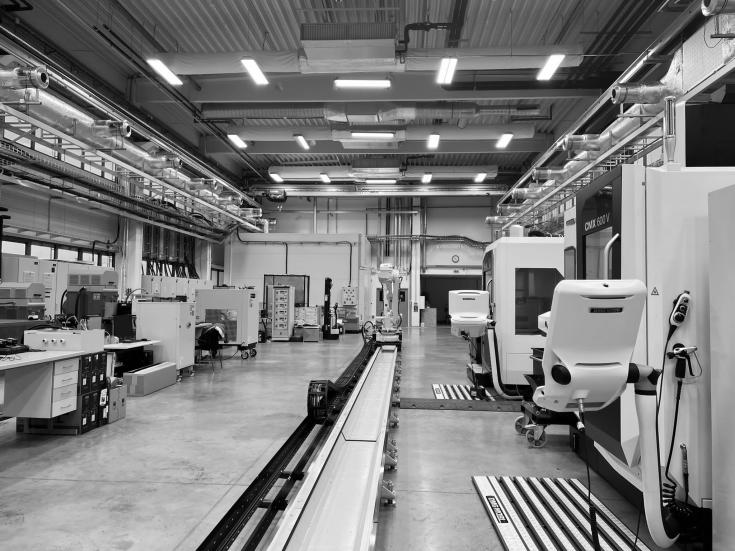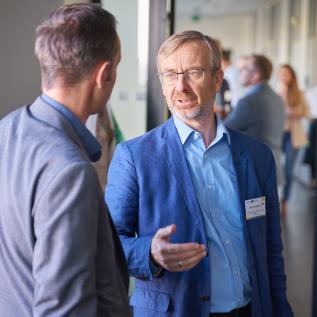Developing new S3 economic strengths in Northern Netherlands

On 8 November 2024, the Policy Learning Platform held an onsite matchmaking, which requested advice regarding their policy challenge on designing and implementing a long-term, adaptive governance and support framework to identify, select, and nurture high-potential niche specialisation opportunities for innovation valorisation in the Northern Netherlands.
The Northern Netherlands Regional Innovation Strategy (RIS3) aims to achieve social and economic goals through four green transitions, creating opportunities for regional specialisation. New specialisation opportunities such as neuromorphic computing, however, require long-term innovation deployment approaches, driven by close and continuous collaboration between multiple innovation actors.Therefore, instead of providing grants to “classical” two to three-year innovation projects, the Provinces and the SNN are collaborating on a new experiment that will select one or two “niche” specialisation opportunities with future valorisation potential through a competitive process. Selected consortia will enter a long-term partnership with the SNN as the responsible managing authority to implement a jointly created vision and development strategy for their specialisation.
Regional governments will provide multi-year, tailored support, including financing for individual projects and non-financial assistance, such as expert coaching. The concrete support measures will be constantly adapted to the progress of strategy implementation, thus allowing for a policy approach clearly driven by impact-orientation and innovation valorisation.
The Northern Netherlands is currently in the process of designing the 2025 experiment, which will focus on identifying and selecting one or two specific areas with high potential. Emerging consortia will be challenged to design a clear vision and develop a strategy for the innovation valorisation opportunities they identify. Regional governments will participate actively in strategy implementation with the commitment to providing tailored, one-on-one support over a 7- to 10-year horizon, with funding sourced from various channels.
Participants
Host region: Northern Netherlands Alliance (SNN), the Netherlands
- Luc Hulsman, Northern Netherlands Alliance (SNN)
Matchmaking Peers:
- Aitor Mintegui, policy officer in charge of Industry and Innovation in the Delegation of the Basque Country to the EU, Basque Country, Spain.
- Andreea Leru, Representation Office in Brussels of the Regional Development Agency North-East, Romania.
- Luis Goñi Navarro, Innovation Strategist, Navarra, Spain.
Discussants:
- Beata Kviatek, Centre of Expertise Energy / Energy Transition Centre ENTRANCE of Hanze University of Applied Sciences Groningen, Groningen, The Netherlands
- Pauline Pupier, SATT Conectus Alsace, France.
Moderators:
- Arnault Morisson, Interreg Europe Policy Learning Platform,
- Marc Pattinson, Interreg Europe Policy Learning Platform,
- Thorsten Kohlisch, Interreg Europe Policy Learning Platform,
Key recommendations
During the matchmaking, several key recommendations were shared by peers to help the Northern Netherlands in the design of the 2025 experiment.
Find the right governance
- Distributed and adaptable governance: combine top-down leadership with bottom-up engagement. Establish inclusive governance bodies with representatives from government, industry, academia, and civil society to guide strategy and monitor progress.
- Empowered consortia: involve diverse stakeholders, beyond traditional actors, through co-creation processes. Provide tailored support, including financing expertise, financial aid and expert coaching, to build strong consortia.
- Empathy and commitment: design governance with stakeholder empathy, recognising the challenges of maintaining engagement over 7–10 years. Regular feedback and milestone celebrations will sustain trust and motivation. Without compromising the dynamic character of the support portfolio, minimum basic funding for the consortium might be considered to keep the commitment and ownership of the consortium members in the long-run (risks of staff and organisational changes; reorientation of organisational priorities, etc.).
- Adaptive strategy: use short-term, measurable goals to track progress toward long-term objectives. Enable continuous adjustments to address emerging needs and ensure resilience.
- Monitoring and collaboration: implement structured monitoring and periodic stakeholder forums to align efforts, evaluate progress, and maintain momentum.
Figure 1. A possible process for the experiment. Source: Luis Goñi Navarro

Provide a guidance blueprint
Develop a comprehensive guidance blueprint to serve as a strategic roadmap for consortia, ensuring alignment, adaptability, and progress toward long-term goals. Key elements include:
- Vision and desired outcomes: collaboratively define a shared vision with the consortia to inspire commitment and sustain focus on long-term objectives, whilst ensuring an active involvement of the managing authority in all stages of strategy implementation.
- Strategic milestones: utilise strategic foresight methodologies to map potential scenarios and guide consortia through key milestones, fostering adaptability and innovation.
- Funding opportunities: offer clear guidance on accessing funding sources and support services aligned with milestones and progress along the technology readiness levels (TRLs). Integrate risk capital as a critical enabler by:
- Encouraging public-private partnerships to leverage risk capital for high-potential projects.
- Creating incentives for investors to engage in early-stage innovation and align their goals with regional development objectives.
- Using risk capital expertise and capital itself to build momentum and commitment by funding pilot projects and scalable initiatives that demonstrate tangible results, thereby attracting additional investment.
- Key Performance Indicators (KPIs) along the main phases of the experiment—short/medium/long term to track progress
- Consequently, the coaching support to consortia shall include financial expertise.
- Consortia evolution and governance: create a space for experimenting with and refining flexible governance models, enabling consortia to evolve dynamically while maintaining stakeholder engagement.
Additional information
-
Interreg Europe policy brief on interregional complementarities in innovation
-
Interreg Europe webinar on strategic foresight

Peer review publication
Find more information on the methodology and experiences of previous beneficiaries in our publication.

Apply for a peer review
Start your peer review application process today and find solutions to your policy challenge with our expert and peers!
